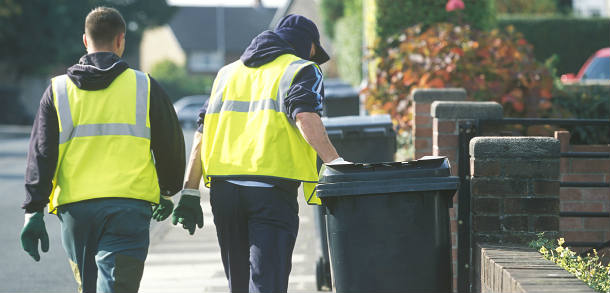

Reducing your waste at home and recycling correctly is a great way to help protect the environment, and it can also save you money! Read on for some top tips and advice to get you started.
Firstly, consider waste prevention. This is the idea of not generating waste in the first place. Think about cutting down the amount you put in your bin by choosing reusable items instead of disposable ones, or reducing the amount of food you throw away.
Waste prevention is the highest priority (think reduce, reuse, recycle) so it should always be the first thing you consider.
When you go shopping, try buying loose fruit and veg to avoid plastic packaging. Visit your local refill shop for packaging-free items like pasta, flour, chocolate and even washing up liquid!
Another great swap you can make to reduce packaging is to switch to a bar of soap or solid shampoo. This is a great way to cut down on bathroom plastics, and will likely save you money too. Bars of soap are often cheaper and last much longer than their counterparts.
Did you know that on average, homes in Essex waste £720 a year in food that could have been eaten? This is a big waste of delicious food and your money. Food waste also makes up 25% of general waste. Planning meals ahead of time, serving the right portion sizes, storing food correctly and using up leftovers are all great ways to save you money and protect the environment.
Visit Love Food Hate Waste for some great tools to help you cut down on food waste.
Composting at home is a natural process that turns some of your food and garden waste into soil improver for your garden. Composting at home is quick and easy to do, and you can get started right away by purchasing a subsided compost bin or building your own compost heap. It's also a great way to reduce food waste!
There's loads of easy switches you can make when you're out and about to cut down on waste. Try bringing a reusable coffee cup out with you, or bring a refillable water bottle instead of buying bottled water. You could even try popping a reusable metal straw in your bag so you can say no to single-use plastic straws!
Visit the Refill site and download the app to find where you can top up your water or use your reusable coffee cup on the go!
Did you know that each child will need, on average, 5000 disposable nappies, or just 25 cloth nappies? This means that switching to cloth is a great way to reduce your household waste if you have young children. It could also save you up to £1000 per child, which even takes into account the cost of cleaning. If you have more than one child, you can use the nappies again and again meaning an even bigger saving!
Cloth nappies are also great for your baby! They are made of natural comfortable materials such as cotton and bamboo, which are soft and gentle on your baby's skin. Disposable nappies are made of super-absorbent chemicals, paper pulp and plastic.
Find out more about cloth nappies and how to claim your £30 refund.
Washable cloths are a great alternative to disposable wipes. For babies, the natural materials are more absorbent and super soft on your baby's skin or for wiping sticky fingers. Simply dampen the cloth wipes and pop them in a small bag or container to keep them moist. They’ll then be ready to use whenever you need them. For cleaning, cloths make a great alternative to disposable wipes, and you can use them with a cleaner of your choice. Simply pop them in the wash when you're done! Find out more on cloth wipes and where else you can make the switch around the home.
Secondly, think about reuse and repair – does it really need to be thrown in the bin? Reuse is the idea of passing on unwanted items to others, so they can be used again and again. This is a great way to keep items such as furniture and clothes out of the waste stream. Alternatively, why not think about repairing an item instead of throwing it out?
Try giving away or selling your stuff through popular social media platforms such as Facebook selling groups and auction websites such as eBay and Gumtree. It’s easy to find someone local wanting your items, often they will even collect from you.
If you are looking to give your items away for free to people in your community, you could join the 85,000+ residents already using Freegle in Essex. Find out how to join your local Freegle group.
Find more information on how to donate your stuff to local good causes.
Finally, if you do need to throw something away, make sure you dispose of it correctly! This means putting the right items in the right bins, regardless of whether it’s general rubbish, recycling or food.
If you’re not sure about this, check your local city, borough or district website for more information, or use the Love Essex search function.
There are also some easy things you can do to create more space in your bags and bins.
If plastic bottles are taking up too much space in your recycling, washing and squashing can help. Simply give the bottle a quick rinse, squash the air out and then pop the lid back on.
If you’re ordering more online instead of going shopping, you may have more cardboard than usual. Remember to press down and flatten your cardboard before placing in your recycling container to save on space!
To save space in your recycling container, empty, rinse and squash your tins and cans before recycling.
Ideas to help reduce your plastic